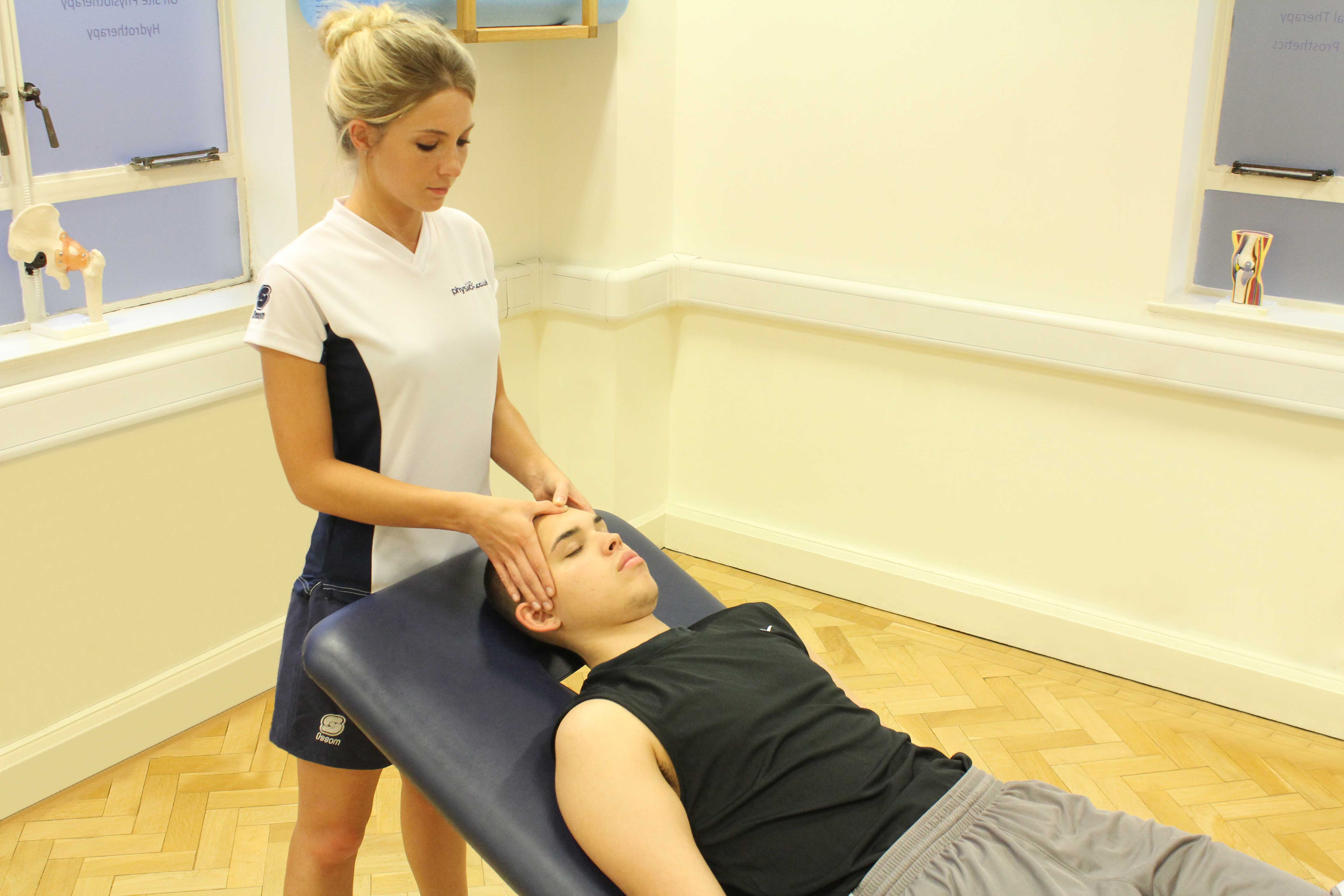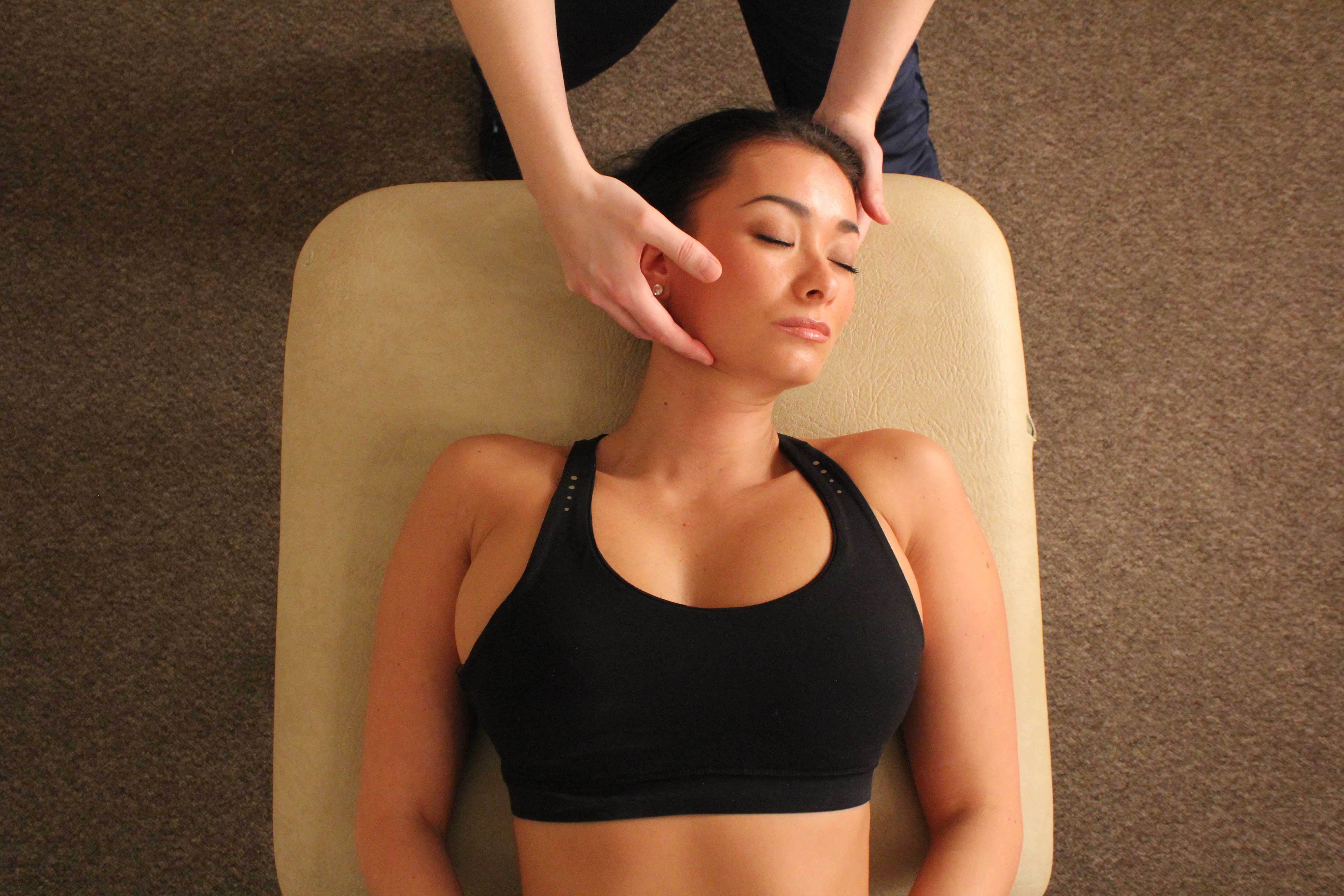What is Bell's palsy?
Bell's palsy is a condition that causes paralysis of the face. It comes on suddenly, affects only one side of the face and has no obvious cause. Bell’s palsy is usually temporary. Physiotherapy is an effective was of treating Bell’s palsy.
What causes Bell's palsy?
 Above: Bells Palsy can cause facial paralysis
Above: Bells Palsy can cause facial paralysisThe cause of Bell’s palsy is unknown. It is thought, however, that it may be linked to the cold sore virus. This virus can lie dormant on one of the facial nerves and then reactivate at a later date. Other viruses such as chickenpox and shingles can also trigger Bell’s palsy.
What are the symptoms of Bell's palsy?
The onset of Bell's palsy is often very fast. It often occurs over a period of hours or overnight. The main symptom is total paralysis or weakness on one side of the face. This paralysis can cause:
- a sagging eyebrow
- difficulty closing the eye.
- a drooping mouth on one side
- dribbling on one side of the mouth
- slurred speech
- dryness or watering of the affected eye
- a turned-out lower eyelid
 Above: Soft tissue massage of head and face to releive stiffness and stimulate neurological repair
Above: Soft tissue massage of head and face to releive stiffness and stimulate neurological repairAbout 80% of people with Bell's palsy recover within three weeks. The other 20% experience gradual improvements over 3 to 6 months, as the nerve regenerates.
What should I do if I have Bell's palsy?
If you suspect that you have Bell’s palsy you should arrange an appointment with your GP as soon as possible.
What shouldn't I do if I have Bell's palsy?
If you suspect that you have Bell’s palsy you should not ignore the problem as you require immediate medical treatment to maximise your chances of making a full recovery.
Medical treatment for Bell's palsy
Your doctor will usually be able to provide you with a diagnosis by listening to your symptoms and looking at your face. Your doctor may perform some tests to rule out other conditions that can cause facial paralysis.
 Above: soft tissue massage apllied to the head and face to releive aching and stimulate repair of muscular inervation
Above: soft tissue massage apllied to the head and face to releive aching and stimulate repair of muscular inervationTreatment varies between individuals but most will be prescribed a course of steroids to reduce the inflammation of the facial nerves and some will also be prescribed anti-viral drugs.
- Regularly close the eye by pulling the upper lid down with your finger.
- Wear protective glasses or an eye patch.
- Tape the eye closed before you go to sleep.
- Use artificial tears (eye drops) to keep the eye moist - ask a pharmacist for advice.
Physiotherapy treatment for Bell's palsy
Physiotherapy is important in the recovery from a Bell’s palsy. The physiotherapists at Physio.co.uk can provide you with;
- Advice on maximising your potential for recovery
- Advice on eye care
- Electrical muscle stimulation (EMS)
- A daily exercise programme
- Postural Realignment
- Soft Tissue Treatment
To arrange a physiotherapy appointment call Physio.co.uk on 0330 088 7800 or book an appointment online.
Does Bell's palsy have any long-term effects?
In a small number of cases Bells palsy causes long-term paralysis of the facial muscles. For these people there are several treatment options that should be discussed with a specialist:
- Surgery to narrow the space between the upper and lower eyelids, to improve eye closure.
- Weighting of the upper eyelid to aid eye closure.
- Cranial nerve release surgery (not often recommended).
- Plastic surgery for facial drooping.

 0330 088 7800
0330 088 7800


































